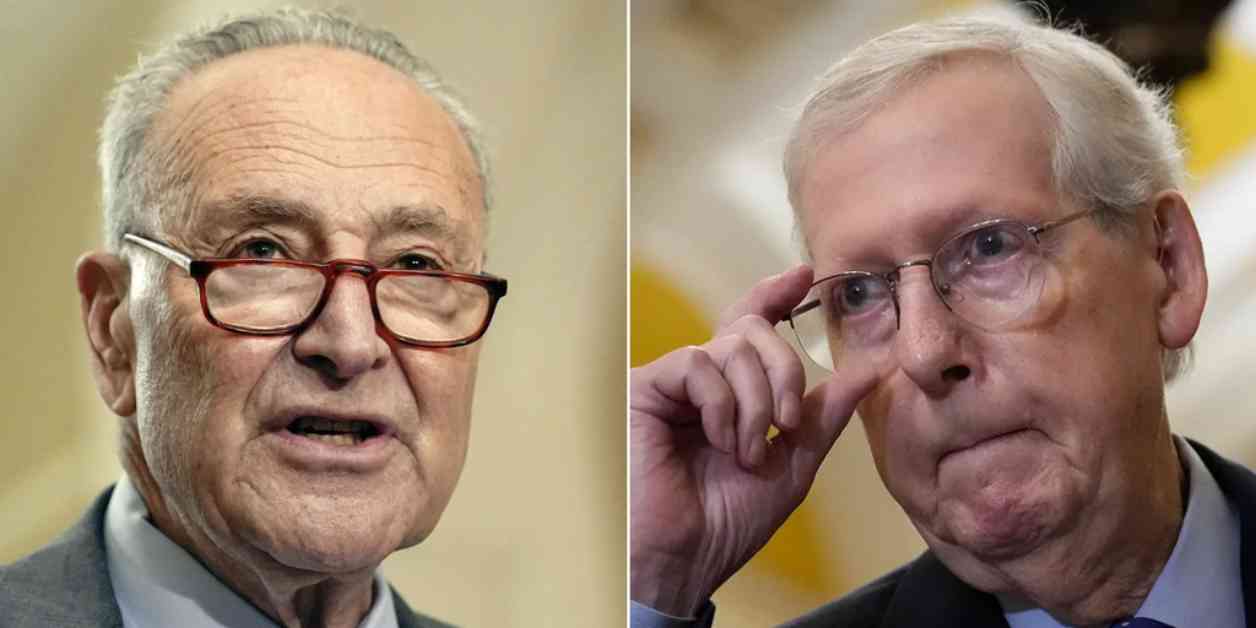Senate Democrats and Republicans reached a late-night agreement on Wednesday, allowing President-elect Donald Trump to appoint four crucial appellate court judges in his upcoming administration. The deal came after Senate Majority Leader Chuck Schumer faced challenges from Republicans using procedural tactics to delay the confirmation process for President Biden’s judicial picks.
The agreement involved Democrats being able to hold votes on four district court judges in exchange for pulling back on higher tier circuit court judicial nominees, giving Trump the opportunity to fill those vacancies. Senators Mike Lee and Eric Schmitt played key roles in securing the deal, which was motivated by a Senate slowdown initiated by Republicans earlier in the week.
The Republican delay tactic was in response to Schumer’s efforts to fast-track additional judicial confirmation votes before the Thanksgiving holiday. By objecting to Democrats’ requests for unanimous consent, Republicans added more votes to the schedule, forcing senators to spend late nights at the Capitol.
Despite the agreement, GOP senators are still expected to oppose Biden’s district judges as they have throughout his term. With Republicans set to take the Senate majority in January, Democrats are rushing to confirm as many of Biden’s judicial nominations as possible before the transition.
As of Wednesday night, Biden’s judicial confirmation count stood at 220, still behind Trump’s 234 confirmed Article III judges during his first term. Schumer’s push for quick confirmations has drawn criticism from Trump, who called for a halt to judicial confirmations before Inauguration Day, accusing Democrats of trying to stack the courts with radical left judges.
In response, a spokesperson for the Trump-Vance transition stated that the President will continue to appoint judges who interpret the law as written, emphasizing the importance of upholding constitutional principles in the judiciary. The ongoing battle over judicial appointments reflects the broader partisan divide in Washington, where both parties are vying for control over the federal judiciary.




